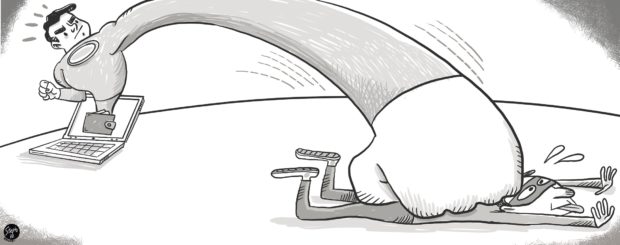As more Filipinos embrace digital transactions due to the lingering pandemic, they should take extra precautions to protect themselves against online fraud and cybercrime to prevent the loss of their hard-earned money. The Bank Marketing Association of the Philippines, for one, is reminding consumers that cyber criminals have evolved and reinvented scams in online shopping, payments, and transactions, leading to fraud incidents that are becoming more complex and harder to detect.
Increased online usage and spending have given rise to many ways of digital scamming. The most common is “phishing,” which uses emails that pose as having been sent from a credible bank or company in order to extract sensitive and private information that can be used to access one’s debit and credit cards and digital financial accounts. There’s also “smishing,” which uses SMS or texts, and “vishing,” which relies on voice calls that pretend to be from legitimate institutions. The more sophisticated operations include ransomware and money muling, which uses other people’s bank accounts as conduits for stolen money.
Last year, the Bangko Sentral ng Pilipinas received 20,000 consumer complaints, of which 13 percent involved unauthorized and fraudulent transactions related to deposits, credit cards, e-money services, and remittances. The Anti-Money Laundering Council also reported that from March to August last year, fraud cases and unauthorized transactions made up almost half of suspicious transaction reports by its covered institutions. This was up by 57 percent from the previous year. The top reasons for transactions being flagged included unauthorized account access through skimming, in which credit or debit card details were stolen from compromised ATM and other machines, and phishing.
Early this month, the Bankers Association of the Philippines (BAP) warned customers to be especially careful of and alert to the growing sophistication of phishing attempts. While banks and other financial technology companies invest heavily in measures to increase the security of their online systems, customers and depositors have an equally important responsibility in maintaining the security of their accounts and transactions. And in this, banking institutions and the government need to educate people on how to spot and prevent such instances of fraud.
Depositors and credit card holders must regularly monitor communications from their banks to protect themselves from cybercrime. Banks regularly communicate the best practices that the public can use to ensure their accounts’ safety, but many people simply ignore these emails and text messages. Banks and security experts also regularly advise consumers to always check the legitimacy of the messages or emails they receive; protect their sensitive information; remain calm when receiving spurious messages and emails no matter how enticing the offers may be; and be careful with their online activities, such as refraining from posting photos of billings, passport, credit cards, and other documents containing sensitive information that may be skimmed by online defrauders. One of the most important safeguards has always been to create and use strong passwords for all accounts across various platforms. People should also take the time to report possible fraud incidents immediately.
Legislators, for their part, need to strengthen the environment against scammers and cybercriminals. The BAP last week called on Congress to pass the proposed Bank Account and E-Wallet Regulation Act, to further protect the financial system. House Bill No. 9615 seeks to punish major offenses such as money muling and phishing by treating these crimes as economic sabotage. The proposed law, still pending at the committee level, prescribes punishment of as long as 12 years in prison and fines of up to P500,000. Persons found aiding a money mule also face similar jail punishment and a fine of up to P200,000.“There has been a rise in the number of cybercrimes perpetrated against the banking public, thus there is a need to ensure that criminals are held accountable for what they have done,” stressed BAP president Jose Arnulfo Veloso. “The Bank Account and E-Wallet Regulation Act expands our government’s tools in fighting against cybercriminals by punishing the usage of financial accounts for criminal activities.”
Quirino Rep. Junie E. Cua, chair of the House committee on banks And financial intermediaries, said he filed HB 9615 because “While there is already an anti-cybercrime law, there is an imperative as well to craft something special for financial transactions.” In the last three years, he added, “around 1,419 incidents were tied to deposit crimes and losses. The distinct lack of sufficient laws and penalties make it difficult to not only discourage cybercrime but also mete out disciplinary action.”
